From the moment the lights dim and the actors come onto the Hadestown stage, you’re instantly transported into another world. Part ancient Greece and part Depression-era America, the play manages to convey the poetic nature of an old myth in a setting that feels real, and serves as a perfect vessel for the play’s greater themes of class conflict.
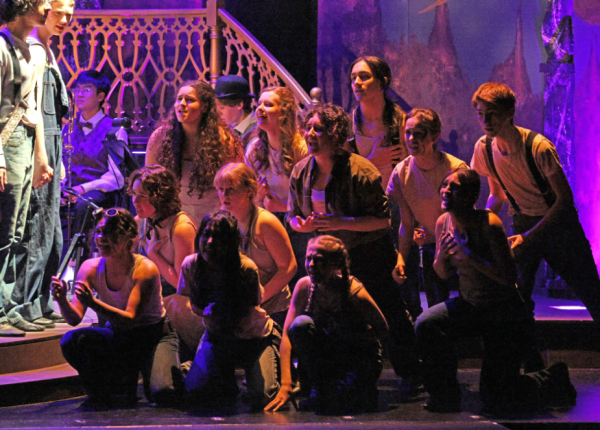
For those who didn’t have a chance to see Hadestown performed, the plot is essentially that of the old Greek legend of Orpheus and Eurydice set in 1930s industrial America. Orpheus, a poor poet who works at a train station, falls in love with Eurydice, a starving drifter. The world is cold and hungry because Persephone (goddess of springtime) is kept in Hadestown by her husband, Hades, for most of the year. When Eurydice, desperate for food, signs a deal with Hades and is sentenced to a hellish eternity of forced labor, Orpheus travels to the underworld to save her.
The play is fantastic. I’ve always enjoyed the Camas High School (CHS) drama department’s productions, but Hadestown is a step above the norm. The music alone is amazingly well-done, and the on-stage orchestra deserves a special mention for their live performance. From “Road to Hell”, the introductory song, to the closing “We Raise Our Cups”, the music remains consistently enjoyable and surprisingly catchy; I was humming tunes from the production for days. It’s no surprise to me that the original play was briefly published as a concept album.
The actor’s performances were truly astounding. Outstanding choreography and passionate acting defined the production (my favorite performance was that of Hades by CHS junior Orrin Brown, who sang “Why We Build the Wall” with unmatched intensity). Never once was I bored or distracted during either viewing, despite watching performances only a week apart.
The core romance is beautiful, and the ensuing tragedy is impactful. But what really interested me about Hadestown, and was much more apparent during my second viewing, was the deeper theme of class conflict and economic oppression.
Hades serves as a metaphor for the wealthy land-owning class. Controlling the industrial hellscape of Hadestown, he practically enslaves his desperate workers in exchange for protection from starvation. He has become domineering over his wife, Persephone and doesn’t allow her to visit the world above for the annual six months agreed upon, plunging the world into an almost unbroken winter.
Herein is a clear allusion to climate change – the greed of the wealthy is depriving the world of its proper seasons, starving the people, and destroying the natural balance of things. Hades can’t put the needs of those below him before his own and thus risks destroying everything (in the song “Chant”, Hades even explains how he’s using his industrial power to produce oil drums and automobiles, obvious and notable contributors to climate change).
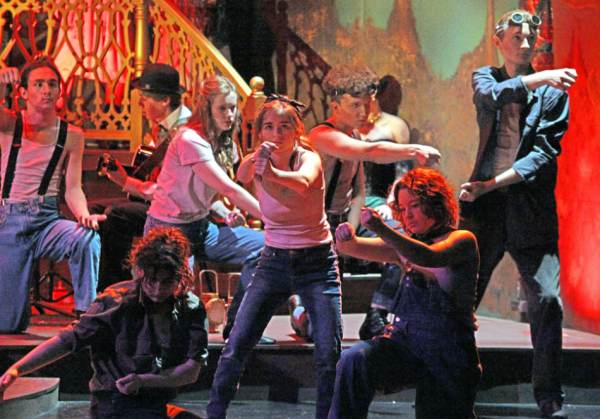
Hadestown also examines the tactics of the upper class in dividing workers. Hades uses his resources and workforce to constantly build a wall that keeps out imaginary enemies and protects against the spectre of poverty – a tactic that allows him to oppress and control his scared workers. This wall is a metaphor for the efforts of the upper class to turn workers against each other so that a larger, class-based revolt would become impossible (for a historical example, look at the response of colonial authorities in America after Bacon’s Revolt, a rebellion that united both black slaves and white indentured servants and sparked widespread efforts to segregate slaves based on race and reinforce racist values among workers).
When Orpheus comes to save Eurydice, he uses his power of song and poetry to unite the workers against Hades and pressure him to let Eurydice go. In the “Chant (Reprise)”, the production directly addresses these class themes, as Orpheus claims that “it’s one million of us against one of them” and then raises a fist of protest, uniting the workers.
When I first watched Hadestown, I thought the Depression-era setting was interesting, but didn’t assign any special meaning to it. But the setting is
a perfect vessel for the themes of class division that the play espouses. What better way to show the effects of unbridled capitalism and an impoverished working class than against the grim backdrop of the Great Depression?
Hadestown was an excellent performance that not only entertained me but also made me think. While an excellent romance and tragedy on its own, the production puts a deeper spin on the classical myth of Orpheus and Eurydice that I really enjoyed. In a testament to modern storytelling, Hadestown reimagines the ancient legend to reflect modern struggles while still retaining all the emotional weight of the original story. The CHS drama department outdid itself, and the acting, singing, choreography, set design, and costumes were all amazing and left a lasting impression on me. Hadestown succeeds not only as a musical and romance but also as a powerful social commentary, all without diluting the core source material or diminishing the classical Greek legend.






















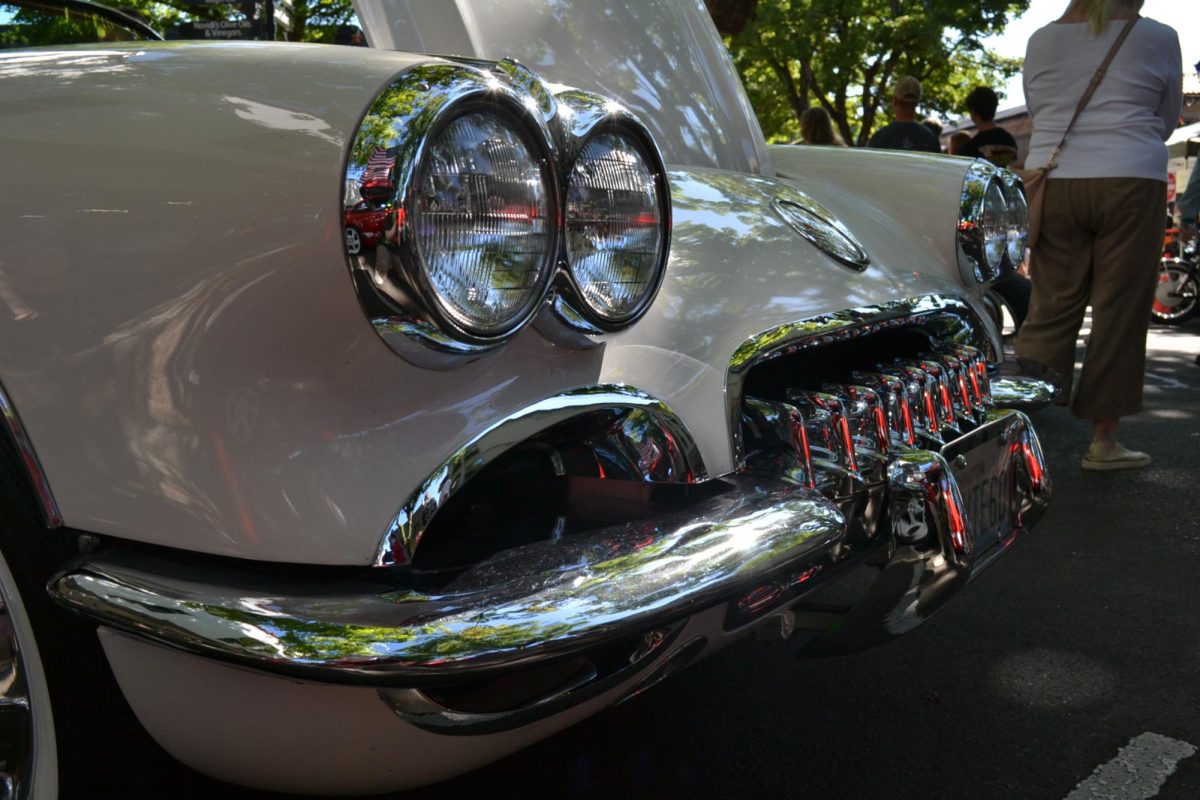












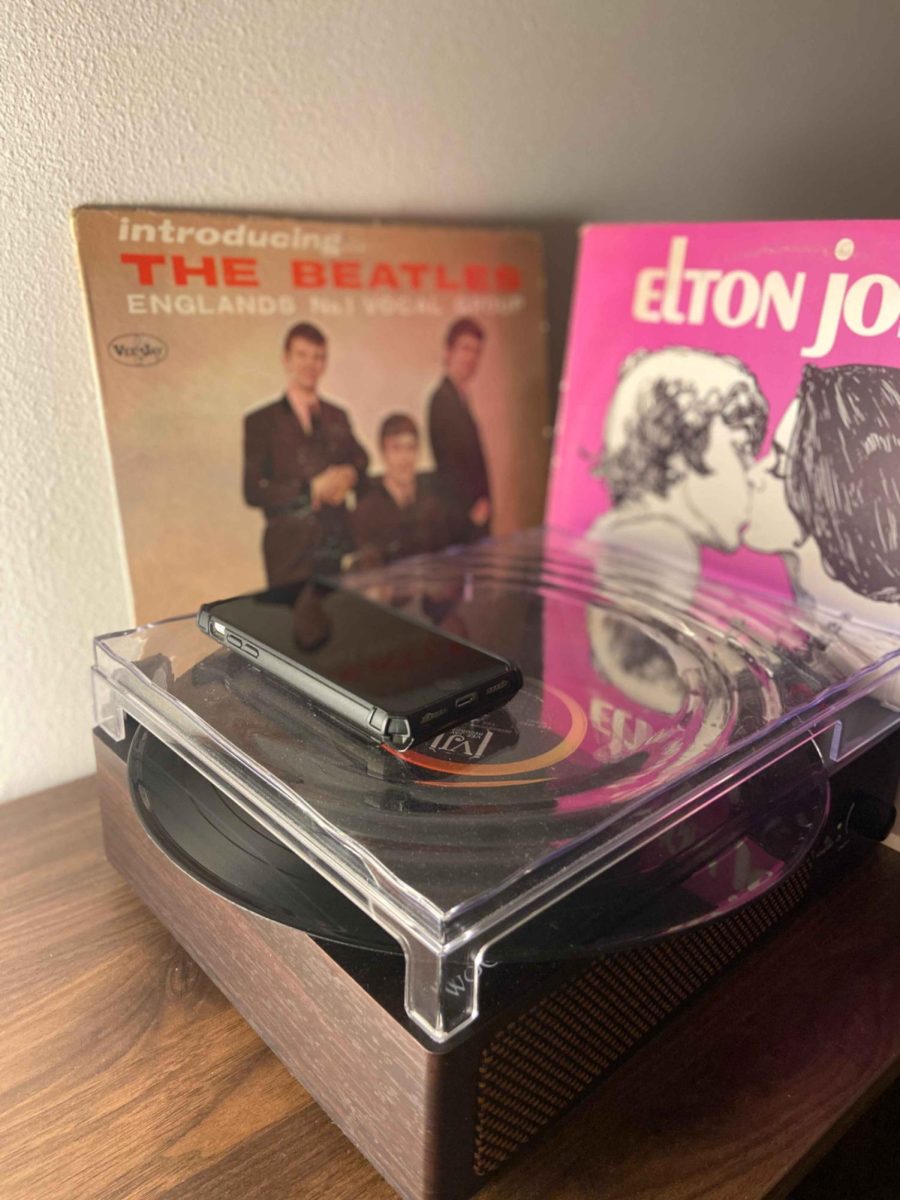
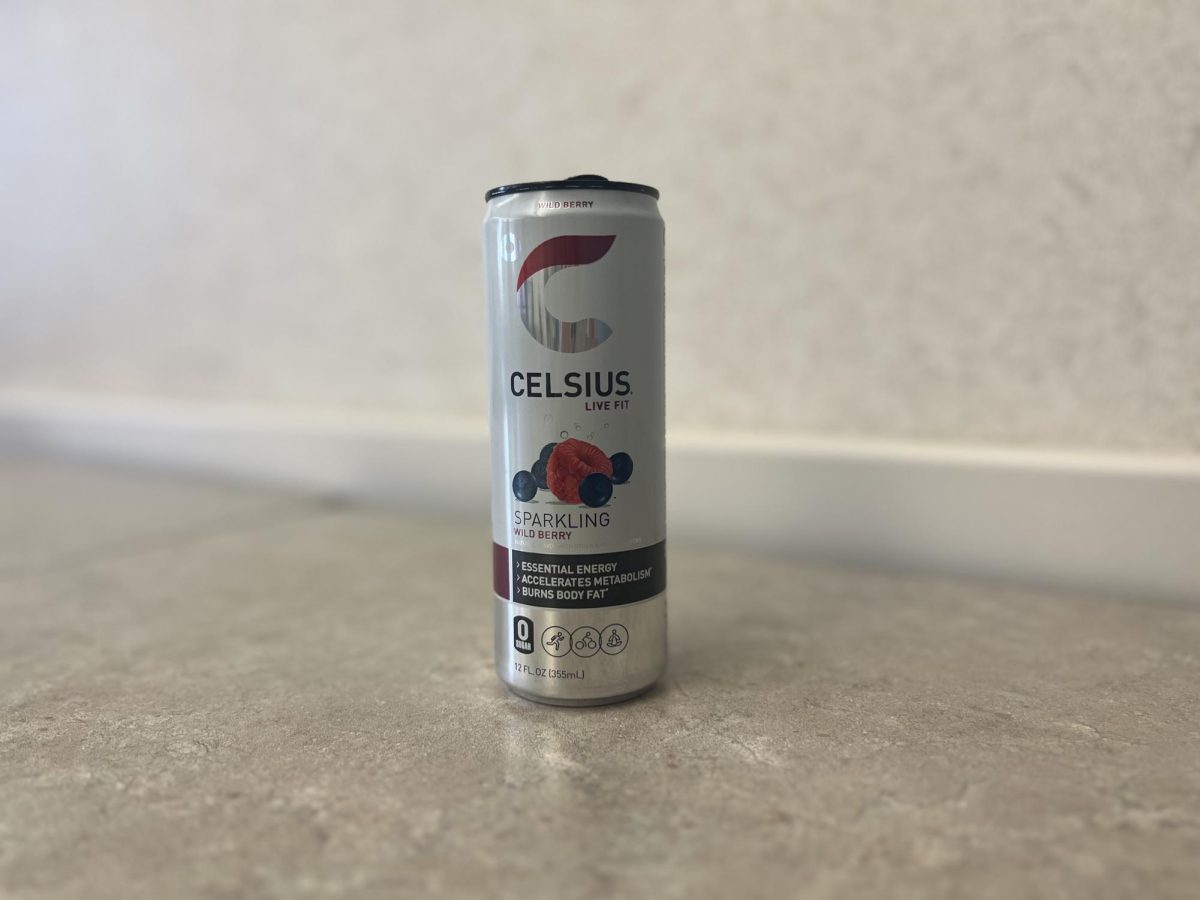

Michael Rosenberg • Apr 1, 2025 at 5:39 PM
I saw some snippets of the show especially the singing of my grandson Orrin Brown.I maybe biased but I was blown away by his singing I live here in Australia and of course I realized that his voice was inherited from “ME” (nothing to do with his ancestors or father(from Canada)I can hardly wait to receive a copy of the whole show.
Orrin Brown • Apr 20, 2025 at 5:45 PM
thanks grandpa keep yourself safe in Australia